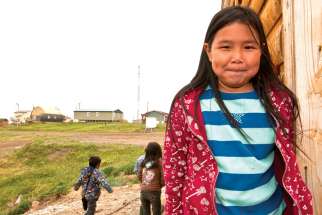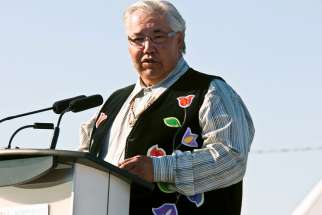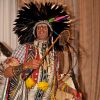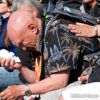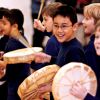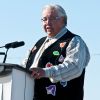Long way to go to First Nations’ reconciliation
The truth is we’re not reconciled, even as the Truth and Reconciliation Commission concludes its five-year inquiry into the legacy of 150 years of Indian residential schools with the release next week of its final report.
Catholic entities ‘discriminated’ against by TRC commissioner
OTTAWA - A lawyer representing the Catholic entities involved in Indian residential schools has vehemently rejected criticism from the Truth and Reconciliation Commission’s (TRC) head who has accused the Catholic Church of withholding documents.
TRC seeks more documents
OTTAWA - The Truth and Reconciliation Commission (TRC) is seeking a court opinion on its mandate to collect government documents under the Indian Residential Schools Settlement Agreement.
Residential schools are relevant to all Canadians
TORONTO - “Canadians from before have done a great disservice to Canadians who are new by not telling the story, the true story of this country,” said Estella Muyinda.
Muyinda was born in Uganda. Today she is a lawyer and just as thoroughly Canadian as everybody else in line at Tim Horton’s — and more than some. She’s spent time in Inuvik and Tuktoyuktuk in the Northwest Territories. In travelling the country she has learned about the first of Canada’s three founding nations.
TORONTO - While residential school survivors told their life stories of trying to piece together family life after childhoods spent in an institution, Hilton Henhawk held a brush above canvass.
As an artist trained at the Ontario College of Art in Toronto and an elder in his own right, Henhawk was seeking a picture of native culture and identity that transcends the residential school experience without forgetting the harm his people have suffered.
"It's got to be representative of the native as a whole," Henhawk told The Catholic Register as he began to paint an ideal chief — a leader who could embody the spirit of his people.
The bitter history of Canada's attempt to wipe out aboriginal culture through a system of Church-run schools has come to Canada's largest and most invisible Native community — and it's biggest city.
The Truth and Reconciliation Commission of Canada is meeting with 600 delegates, including about 100 residential school survivors, in downtown Toronto at a May 31 to June 2 community-organized event called The Meeting Place, a name that freely translates the Mohawk word ktaronto, which eventually became the name of the city. There are about 80,000 aboriginal Canadians — Metis, Indian and Inuit — living in Toronto.
TORONTO - The long, hard national look at Canada’s history of the Indian residential schools comes to Toronto May 31 to June 2.
The Truth and Reconciliation Commission of Canada is supporting a regional event at Toronto’s Sheraton Centre Hotel. The three days will give Toronto-area First Nations’ people a chance to learn about the history of residential schools and an opportunity to share personal stories about the residential school experience and how it has affected families.
TORONTO - In his Grade 9 art class at Fr. John Redmond Catholic Secondary School in west end Toronto, Roman Makuch is drawing beavers, turtles and geese, trying to see through aboriginal eyes and express himself with First Nations’ symbols. The semester dedicated to studying aboriginal art is not easy, Makuch tells a visitor. But he believes it’s valuable.
“We’re all Canadian,” he said. “We’re all proud of being Canadian and part of our past is aboriginal.”
Grade 12 student Radiyah Chowthury spent last year reading aboriginal authors in her Grade 11 University Enriched Natives Studies English class at Blessed Mother Teresa Catholic Secondary School in Toronto’s Malvern community. She can’t imagine not studying aboriginal authors. As an immigrant kid, she’s unwilling to settle for a history of Canada that begins and ends with European sailors bumping into a big, cold land mass on their way to India.
Truth and Reconciliation Commission seeks more government co-operation
Churches need to define how they're going to help repair the damage residential schools did to aboriginal culture in Canada and the federal government must cough up the millions of documents that future historians will need to tell the story of Canada's effort to assimilate First Nations' people, says the interim report of the Truth and Reconciliation Commission of Canada.
The report marks the halfway point of the five-year mandate of the commission. It warns that government reluctance to provide full and meaningful access to Library and Archives Canada records threatens the mandate of the commission. The TRC intends to go to court to force greater government co-operation.
Truth and Reconciliation Commission seeks more funding
The Truth and Reconciliation Commission looking into Canada’s 130-year history of residential schools for native children may not have enough money to finish the job.
The commission was set up in 2008 with a five-year mandate and a $60-million budget. After an initial false start, the commission is now scheduled to produce a final report by 2014.
“The original amount set aside in the Settlement Agreement may need to be revisited,” said the commission’s most recent annual departmental performance report to the Treasury Board.


